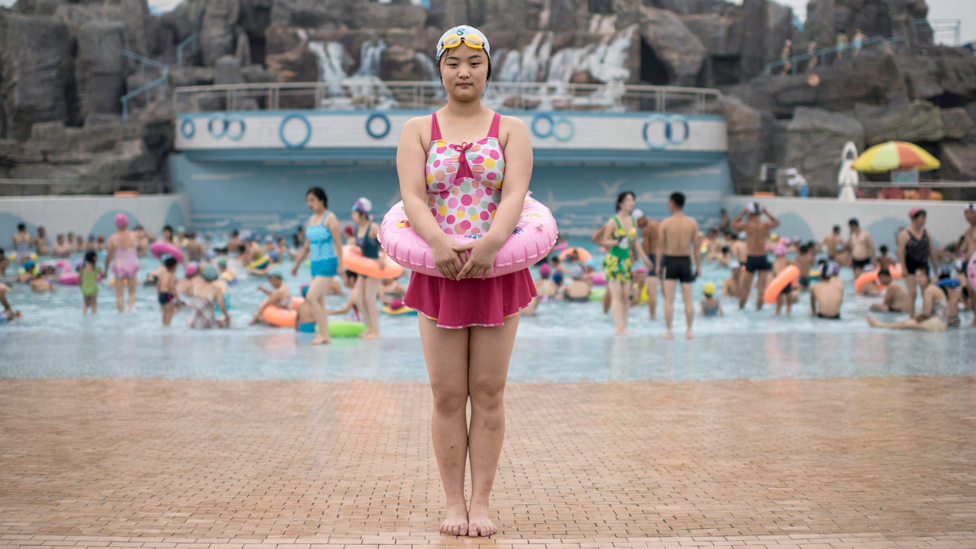North Korea summit: Kim accuses US of 'bad faith'
- Published
Putin and Kim toast at the summit in Vladivostok
North Korean leader Kim Jong-un has accused the US of acting in "bad faith" during the summit earlier this year with President Donald Trump, according to the Korean Central News Agency.
He also said peace in the Korean peninsula would depend entirely on Washington.
Mr Kim made his remarks at Thursday's summit with Russia's President Vladimir Putin in Vladivostok.
The North Korean leader departed Vladivostok on Friday.
Russian media had reported that Mr Kim would be visiting the city's aquarium and seeing a ballet, however his visit was cut short. It is unclear why.
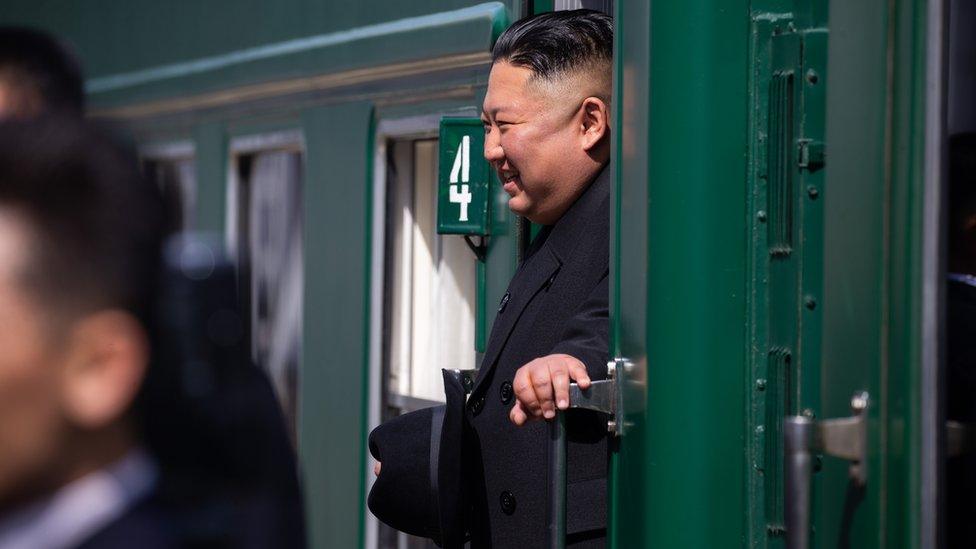
Kim Jong-un smiles as he departs Vladivostok
KCNA reported that President Putin had accepted an invitation to visit North Korea.
The visit would take place "at a convenient time", the news agency added.
During the meeting, Kim Jong-un reportedly told Vladimir Putin that "the situation on the Korean peninsula and the region is now at a standstill and has reached a critical point".
He warned the situation "may return to its original state as the US took an unilateral attitude in bad faith" during recent talks.
It comes a week after Pyongyang accused the US of derailing peace talks.
Negotiations between the two countries broke down during a summit in Vietnam in February, with no deal reached over North Korea's nuclear weapons.
Those talks reportedly stalled over North Korea's demand for full economic sanctions relief in return for some denuclearisation commitments - a deal the US was not willing to make.
During Thursday's summit in Vladivostok, President Putin attempted to act as arbiter, saying Mr Kim needed international security guarantees if he was to end his nuclear programme.
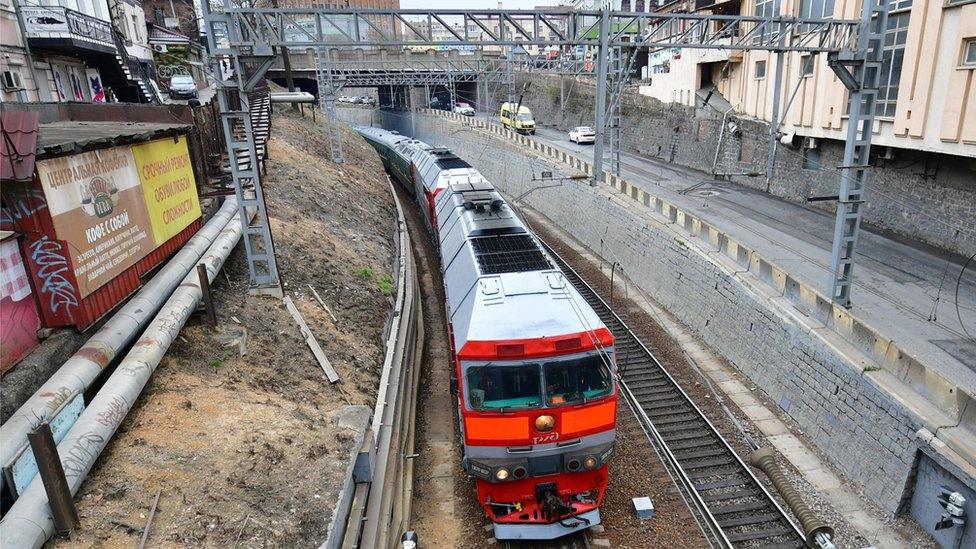
Mr Kim travelled on his armoured train
Such guarantees would need to be offered within a multinational framework, the Russian leader added.
"We need to... return to a state where international law, not the law of the strongest, determines the situation in the world," Mr Putin said.
Mr Kim greeted Russian officials warmly when he arrived in Russia on Wednesday.
He praised the summit as a "very meaningful one-on-one exchange," and said he hoped to usher in a "new heyday" between Moscow and Pyongyang.
What do we know about the summit?
The two leaders agreed to seek stronger relations. However nothing has been publicly reported about agreements on US sanctions and North Korea's nuclear weapons.
Mr Putin is now attending a two-day summit in China, where he said he would inform China's leadership about the talks. He also said he was willing to share details with the US.
According to Russian presidential spokesman Dmitry Peskov, the Kremlin believes the six-party talks on North Korea are the only efficient way of addressing nuclear weapons on the peninsula.
Vladimir Putin and Kim Jong-un meet in Vladivostok
Those talks, which began in 2003, involve the two Koreas as well as China, Japan, Russia and the US. They are currently stalled, however.
"There are no other efficient international mechanisms at the moment," Mr Peskov told reporters on Wednesday.
"But, on the other hand, efforts are being made by other countries. Here all efforts merit support as long as they really aim at de-nuclearisation and resolving the problem of the two Koreas."
What did both sides want?
The visit was widely viewed as an opportunity for North Korea to show it has powerful allies following the breakdown of talks with the US.
The country has blamed US Secretary of State Mike Pompeo for the collapse of the Hanoi summit. Earlier this month North Korea demanded that Mr Pompeo be removed from nuclear talks, accusing him of "talking nonsense" and asking for someone "more careful" to replace him.

The summit was also an opportunity for Pyongyang to show that its economic future does not depend solely on the US, and for Russia to show that it is an important player on the Korean peninsula.
President Putin had been eager to meet the North Korean leader for some time. Yet amid the two Trump-Kim summits, the Kremlin had been somewhat sidelined.
Russia, like the US and China, is uncomfortable with North Korea being a nuclear state.
How close are Russia and North Korea?
During the Cold War, the Soviet Union (of which Russia is the main successor state) maintained close military and trade links with its communist ally, North Korea, for ideological and strategic reasons.
After the Soviet Union collapsed in 1991, trade links with post-communist Russia shrank and North Korea leaned towards China as its main ally.
Under President Putin, Russia recovered economically and in 2014 he wrote off most of North Korea's Soviet-era debt in a major goodwill gesture.
While it is arguable how much leverage Russia has with the North today, Mr Kim's regime regards it as one of the least hostile foreign powers.
- Published25 April 2019
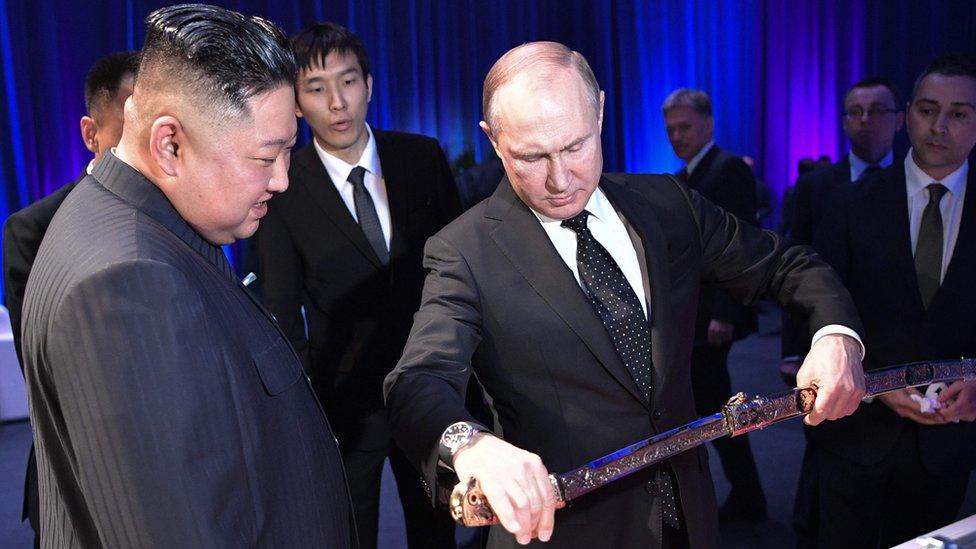
- Published25 April 2019
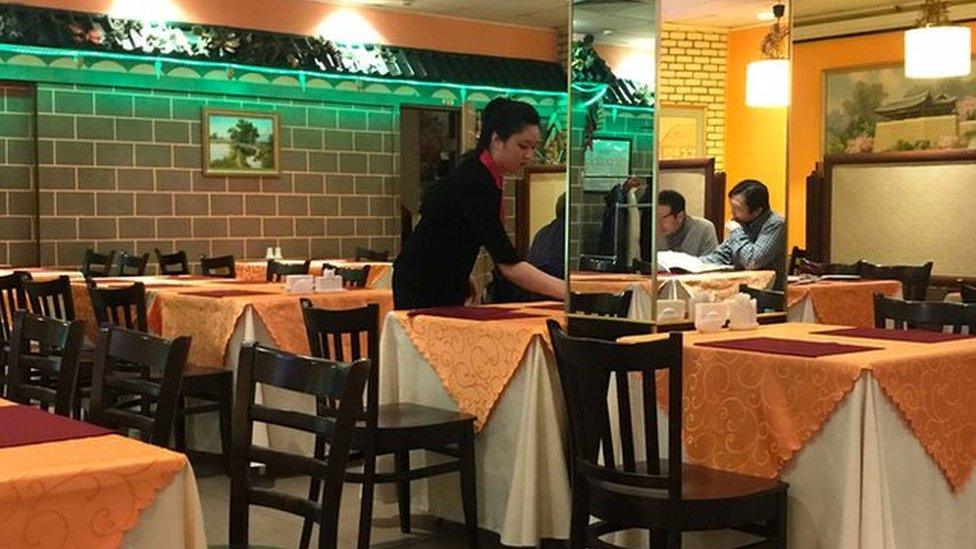
- Published18 April 2019
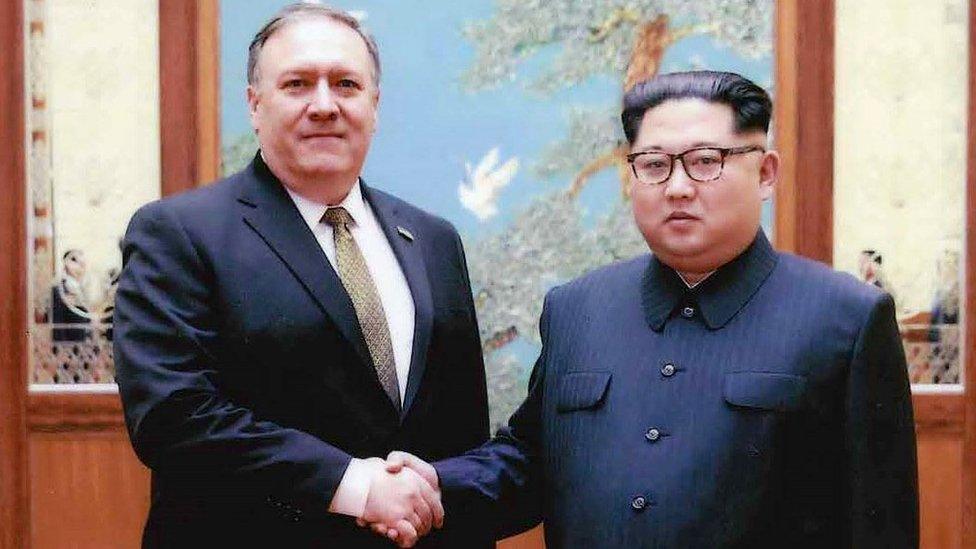
- Published28 February 2019
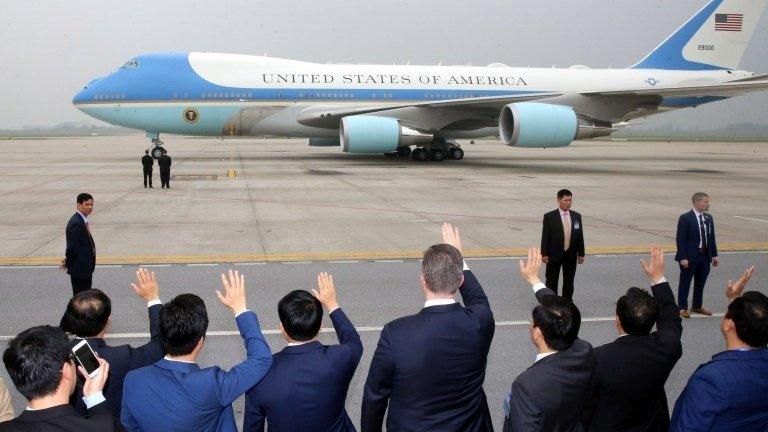
- Published28 February 2019
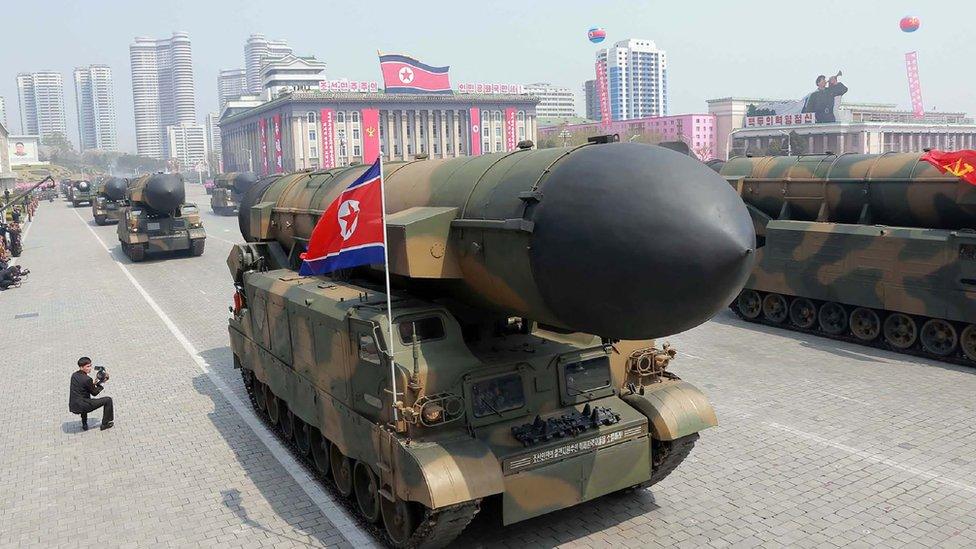
- Published26 September 2017
